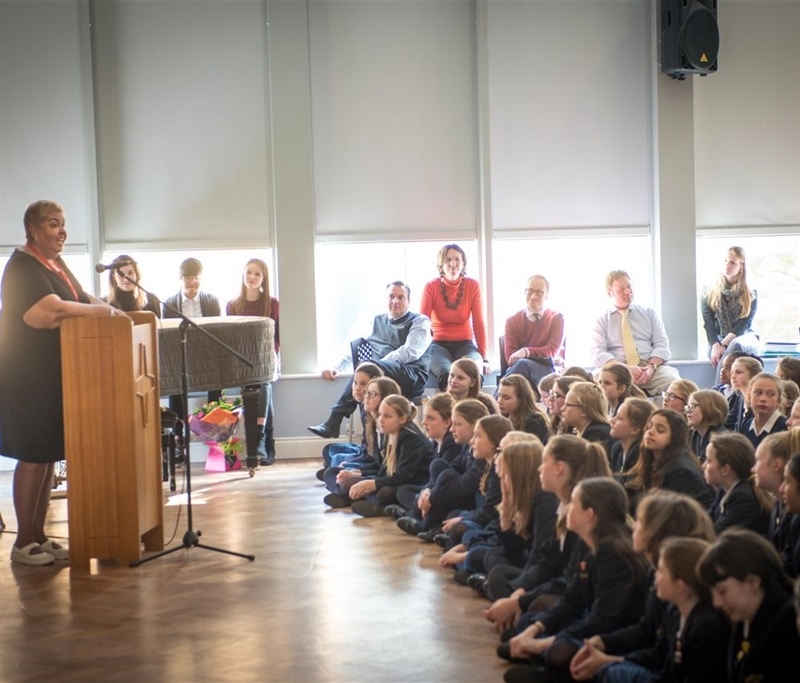Welcoming the High Commissioner for Jamaica

We were honoured to welcome Her Excellency, Aloun Ndombet-Assamba, High Commissioner for Jamaica to speak during full school assembly on Friday 4 March, to mark International Women’s Day (8 March). Mrs Ndombet-Assamba spoke about the challenges women faced less than 100 years ago in this country, when they were not allowed to vote and had to campaign extremely hard to change the law. She described the demonstrations that took place, and the plight of the women who were sent to prisons and beaten, all in order to change the law and win the right to vote. In addition to not being allowed to vote, many women were denied an education. As Her Excellency highlighted in her talk, our foundress Mary Ward was a woman well ahead of her time in this respect; she decided to go against ‘the done thing’ of marrying and instead dedicate her life to the pursuit of providing women with opportunities, especially the right to an education, hence her founding of schools such as our own.
Mrs Ndombet-Assamba explained how proud she was when, last year, the International Labour Organisation (ILO) reported that if you are a woman and you work in Jamaica, the chances are your boss will be a woman. Her Excellency explained that the reason for women achieving so highly in Jamaica is the good education they receive, thanks to the previous generation which fought for this right. Our guest speaker went on to recognise how difficult it can be to be a young person in the 21st Century, with the stresses of school life and adolescence, but the girls were inspired by her story.
They were reassured by her examples of times when a fork in the road presented decisions to which the ‘right answers’ were not clear, but combinations of decisions worked together in the longer-term to lead her to this point. Her Excellency told students about the defining lesson in the best experience of her life when, as deputy head girl it was her job to escort the principal down to the school hall for assembly. On the first occasion, the principal said “well?”, and a young Aloun thought “well, what?”. She realised that part of the role of escorting her principal to assembly was to be able to converse with her – which in turn forced her to learn about what was happening in the rest of the world, in Sri Lanka (in those days called Ceylon), in Pakistan, in the Middle East – so that she would be able to ask the principal “have you heard the news?”.
Mrs Ndombet-Assamba reminded the girls to be thankful for the education opportunities open to them, in contrast to the plight of women 100 years ago, and encouraged them to: "take in everything that is being offered, because you never know what you can use at some point in the future… just soak up every bit of information that you can – and don’t only concern yourself with what’s in the books you’re studying here! Read the newspaper! Watch the news! Listen to the radio!”
We were fortunate to have welcomed Her Excellency Mrs Aloun Ndombet-Assamba into school as an excellent role model for the girls at a poignant time in the calendar year, with her unique story, and inspirational and encouraging words.
The parting words of Her Excellency encouraged the girls: “If you want to be a nail technician, and give people like me these beautiful nails, you can be that; if you want to be a scientist, you can be that; if you want to be an artist – and I have seen some extraordinary artwork at this school – you can be that; if you want to be a teacher, you can be that; if you want to be an astronaut, you can be that – we’ve had some good women who have gone up in to space”.